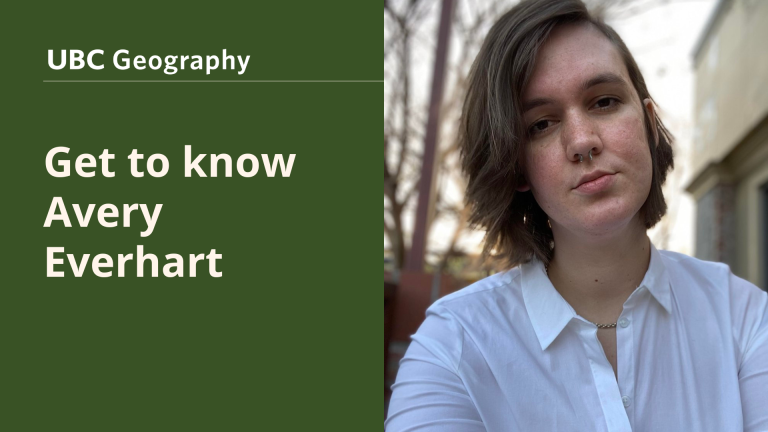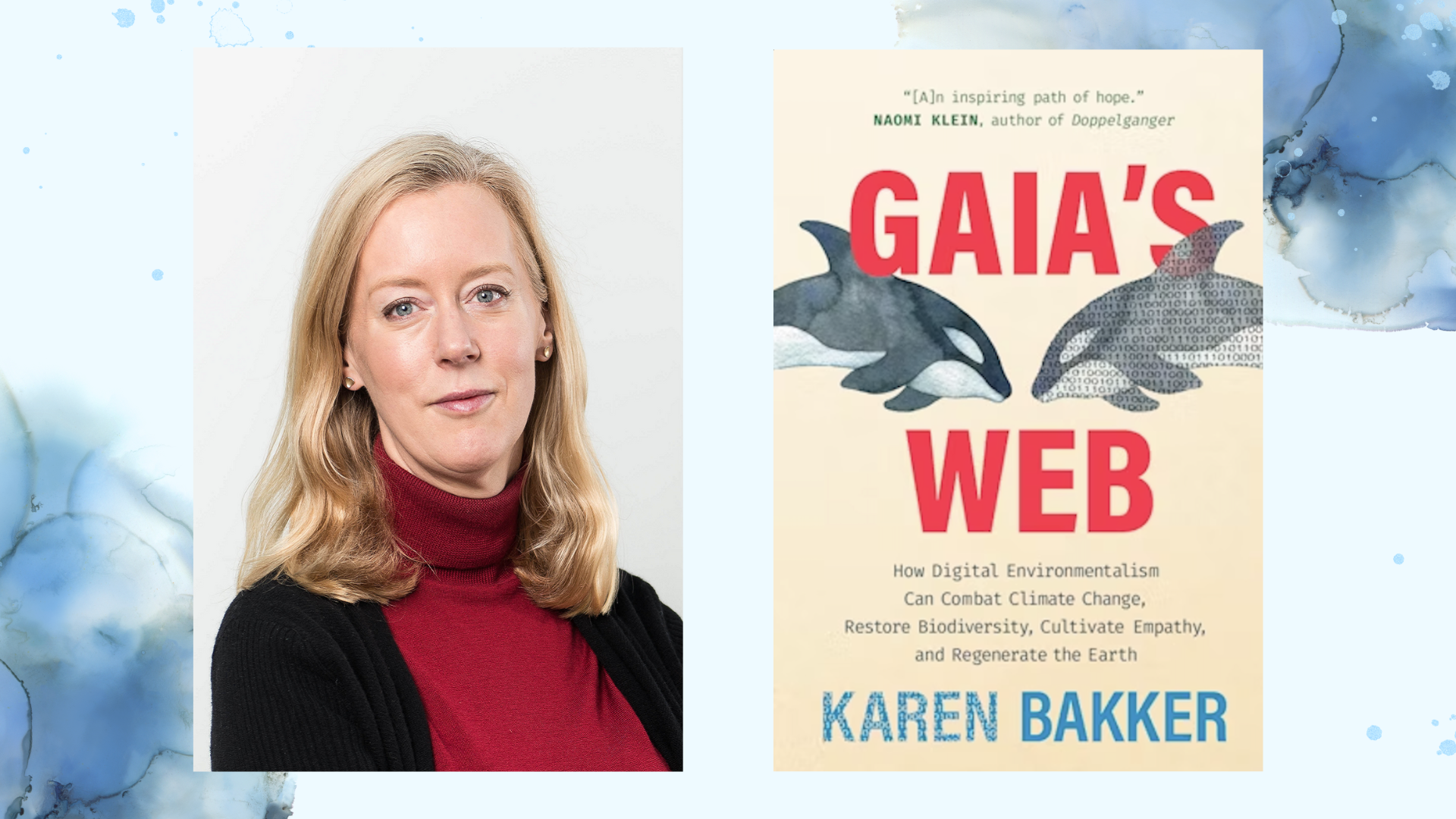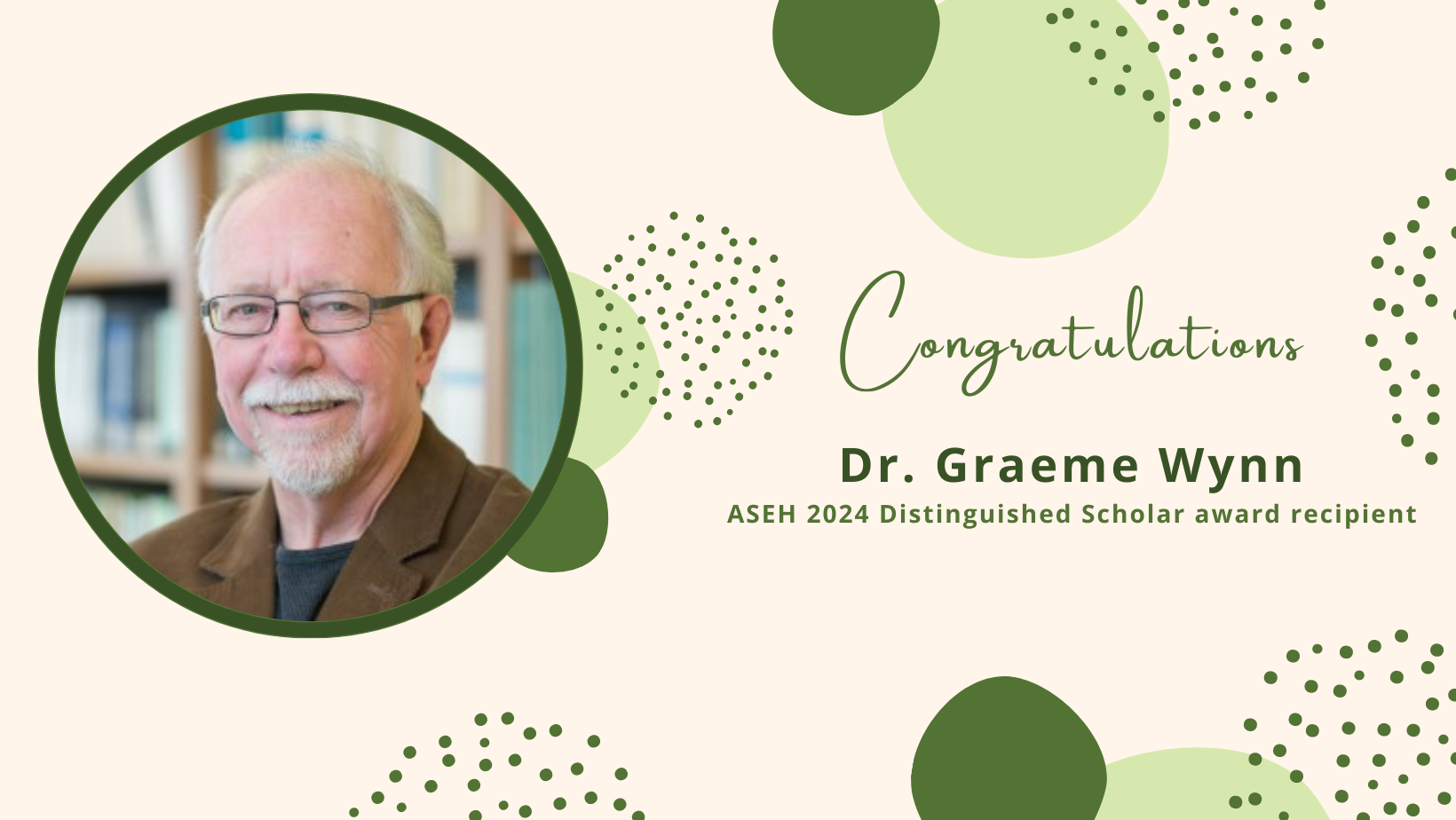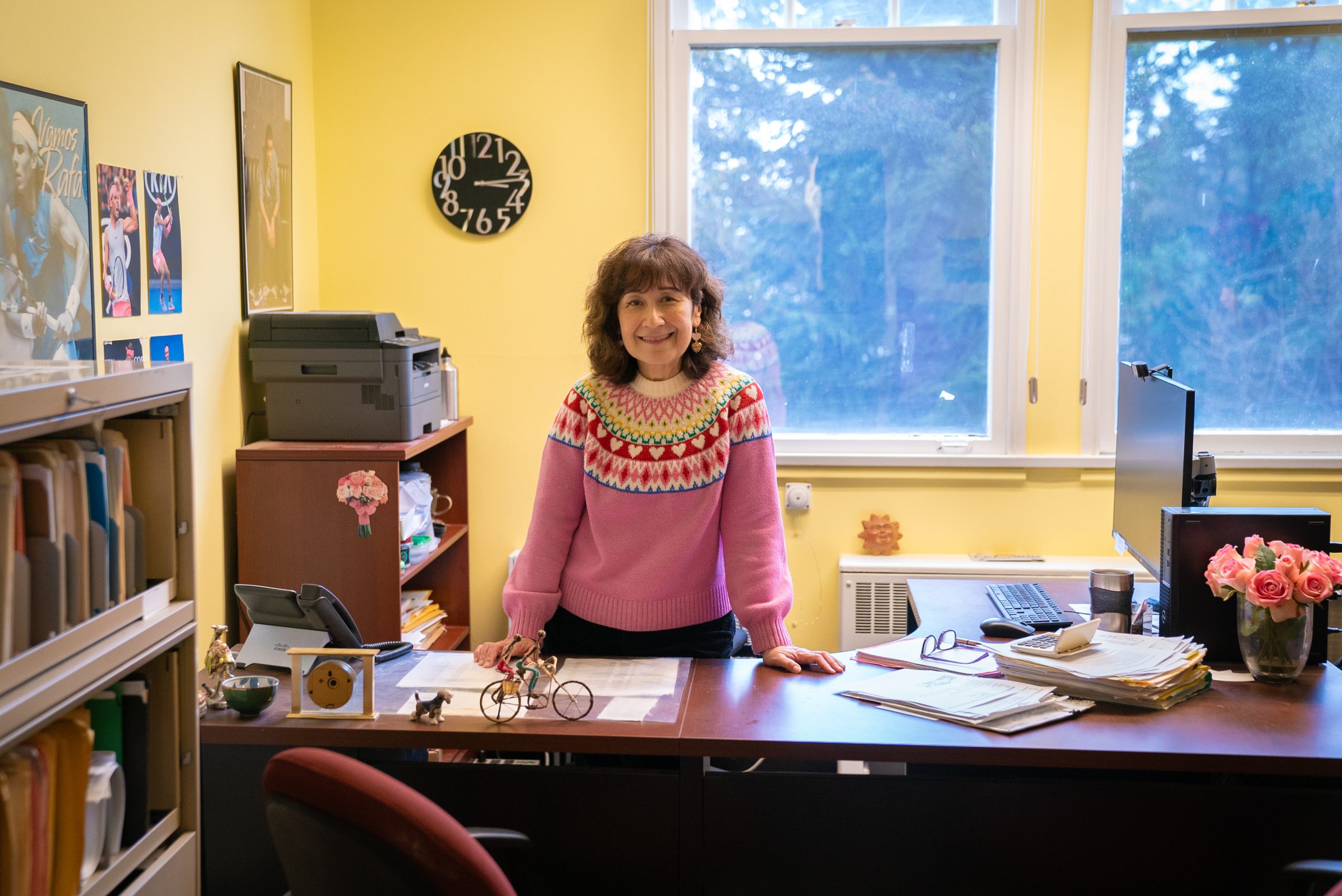

Dr. Avery Everhart joined UBC Geography as Assistant Professor in GIS, Cartography and Transformation in July 2023. She is a Co-Founder of the Center for Applied Transgender Studies and the Bulletin of Applied Transgender Studies.
She will be teaching GEOS 270 Geographic Information Science in Term 1 and GEOS 479 Research in Geographic Information Science in Term 2.
What brought you into academia, and how did you end up gravitating towards geography?
I actually almost didn’t graduate high school! I did not like being told what mattered, and when I had questions about why something was important, being told “because it is”. So I did not do all that well in high school, but I took all the AP exams and got into college.
I immediately loved it. I started taking gender studies and I kept changing my major; taking half of Russian studies, half of anthropology. I just couldn’t get enough, because I got to decide what was important to me. I didn’t really care about the career aspect so much, I just really wanted to know how the world worked and why it mattered.
My professors encouraged me to think about grad school, even though I didn’t know anything at all about it. I got into the masters in Gender Studies at Queens, which is a fantastic program.
There, I started to piece together that what I was thinking about had a lot to do with space and place. I always thought about geography without calling it geography. My core theory course in the masters was taught by Katherine McKittrick, and we talked a lot about how people’s work gets categorized – sometimes without their input.
For my PhD, I ended up in the American Studies program at the University of Southern California, doing medical and legal history, but really geographically focused. I was trying to understand the transnational relationship across the Americas, and the evolution of the different branches of medicine that became trans medicine. I decided I wanted some more technical skills, so I started taking epidemiology and a GIS course. I ended up transferring my PhD to the Population, Health and Place program at the Spatial Sciences Institute.
There, I became obsessed with data, especially the political context in which data is generated, and how we can still work with it – even knowing that it’s imperfect, and that the pervasive and ubiquitous datafication of everything definitely poses some serious threats to people’s material safety. That’s where I really got interested in spatial data. Everything takes place; you can’t control for geography. It’s truly the material context in which everything happens.
So I didn’t really intend to be an academic; I just never got tired of learning and I’m still not tired of it!
What projects are you currently working on?
We recently launched a survey that I crafted over the course of my postdoc with my mentors at the University of Michigan on geographic access to gender affirming care. It’s US-focused for now. I want to treat it as pilot data in order to apply for Canadian funding and do a transnational comparison with more of a community and collaborative element. But it’s basically asking respondents to self-report where they’ve gone to access medical care, and comparing along gender-affirming hormone therapy, gender-affirming surgery and primary care.
So I’ll do some comparisons of where are people reporting they go, how far away it is versus what might be available, with the general hypothesis that people will travel further to access gender-affirming care than they will for primary care, but also that they may travel further than would be physically necessary to access gender-affirming care. So there might be facilities nearby, whether or not they know about them, but they choose to travel further as a pattern. That’s really just from personal experience of knowing the community – when you find a good provider, you stick with them. That’s kind of a truism about medical care, but especially when it comes to something like trans specific care.
The sub-question we’re looking at is how people source information on their care. So who are they more likely to go to if they have questions about surgery or hormones? Do they go to the doctor, do they go online to source information, and how do they find out about providers? We received over 400 responses, which is a lot for a totally voluntary, no incentive online survey, with pretty specific eligibility standards!
In writing, I’m doing some work that looks at how people create technology to help one another access care, and find resources for services. Another is a really long term project that comes from community-based participatory research we’re doing with the Ruth Ellis Center in Detroit, with LGBTQ+ youth and young adults of colour living in the Detroit Metro area, and their experiences with firearm violence.
What are you looking forward to in your first year at UBC?
I’m excited to teach! Being part of this department allows room to further develop the GIS curriculum and teach technical skills in a way that’s critically oriented. So we’re not presenting statistics without mentioning the eugenic origins of statistical theory. Or teaching GIS without mentioning the militaristic and imperial origins of spatial computing. We can do both, and we can do both well, so I’m excited for that.
I am also excited to work with folks that are interested in queer and trans geographies. Even though my role is GIS, I’m not a traditional GI scientist. So I’m always down to chat with folks about medical humanities, and there might end up being something like a trans and queer geography reading group!


